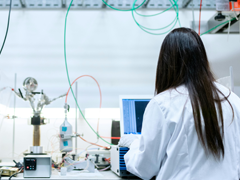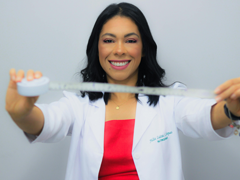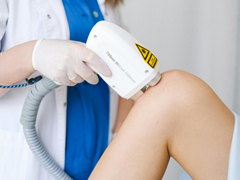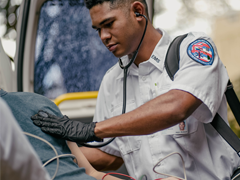Nursing Services is a profession within the healthcare sector focused on providing care, support, and assistance to individuals, families, and communities to promote and maintain their overall health and well-being. Nurses play a crucial role in various healthcare settings, including hospitals, clinics, nursing homes, schools, home care, and more. Nursing is a rewarding profession that requires compassion, critical thinking, communication skills, and a commitment to improving the lives of patients and their communities. The Nursing Services program is designed to provide students with the knowledge and skills necessary to enter into a postsecondary nursing program, leading to an RN license or advanced level credentials in nursing or as a physician.
Healthcare diagnostic services refer to a wide range of medical tests, procedures, and techniques that healthcare professionals use to diagnose and assess medical conditions, diseases, injuries, and overall health status in patients. These services provide essential information to guide treatment decisions, monitor health conditions, and ensure the well-being of individuals. The Diagnostic Services program is designed to provide students with the knowledge and skills necessary to examine, test, and evaluate in the detection, diagnosis, and treatment of diseases, injuries or other physical conditions. Diagnostic services occupations include phlebotomists. radiologists and radiology technicians, histology technicians, and medical sonographers.
Public health services are initiatives and programs designed to promote and protect the health of communities and populations on a larger scale. The Public Health Services program is designed to provide students with the knowledge and skills to undertake a comprehensive approach to health, while learning about social determinants such as poverty, discrimination, and inadequate access to resources and care. Additionally, students will study the patterns, causes, and effects of diseases in a variety of populations, and how the provision of healthcare has changed in response to global needs. Students will be able to interpret and communicate statistical information relating to the distribution of disease, mortality/morbidity, health disparities, health interventions, and analyze health policies and funding.
Human Performance Therapeutic Services (HPTS) is a specialized field within healthcare that focuses on enhancing individuals' physical, mental, and emotional well-being to optimize their overall performance and quality of life. HPTS professionals work with clients to address a wide range of issues, including pain management, injury prevention and recovery, sports performance enhancement, stress management, and more. These services aim to help individuals reach their full potential by improving their functional abilities, reducing pain, and promoting optimal health. The Human Performance Therapeutic Services program is designed to provide students with the knowledge and skills necessary to recognize diseases, disorders, or injuries related to therapeutic and/or rehabilitation services and correlate the related anatomy and physiology symptoms to develop a plan of treatment with appropriate modalities.
Emergency Medical Services (EMS) refer to a system of medical care and response designed to provide rapid and specialized assistance to individuals facing medical emergencies or injuries. The primary goal of EMS is to deliver timely and effective medical care at the scene of an emergency and during transportation to a medical facility. EMS plays a critical role in saving lives, reducing the severity of injuries, and providing necessary medical attention during crises. The Emergency Medical Services program is designed to prepare students for careers in the fields of emergency medicine, including in a hospital setting and pre-hospital emergency medicine. Students will work towards qualifying for an emergency medical technician (EMT) related certification and occupations.






